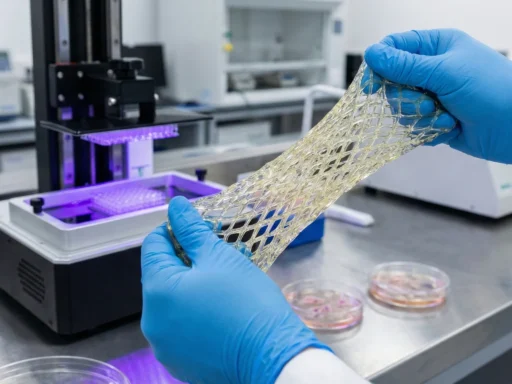A research team from Zhejiang University (ZJU) has invented a next-gen recyclable 3D printing resin that could usher additive manufacturing into a new era of zero-waste sustainability, reports Zhejiang University News. Led by Professors Xie Tao and Zheng Ning from ZJU’s College of Chemical and Biological Engineering, with a PhD student Yang Bo as the first author, the study has been recently published in Science.
The researchers developed a thermally-reversible photo-click reaction that enables 3D printed materials to be recycled infinitely while maintaining strength or performance. “If we could infinitely recycle 3D printing materials,” said Xie Tao, “we’d cut down on both costs and waste – a win-win for both industry and the environment.”
The innovation has a dissociative thiol-aldehyde photochemistry at its core. In a routine experimentation, Yang Bo used a thiol reagent and observed a light-triggered reaction exceeding the team’s expectations. “The reaction behaved the opposite of what we predicted,” the scientist explained. According to Zheng Ning, this rapid reaction was unprecedented under light.
While conventional resins are based on irreversible carbon-carbon bonds, ZJU’s system forms dynamic dithioacetal bonds that can be undone with mild heating, which allows to deconstruct and reuse 3D objects, much like disassembling Legos, as the team put it.
Beyond recyclability, the resin’s modular polymer network design makes the creation of diverse materials entirely possible, be it elastomers or rigid plastics, all without sacrificing performance. “We offer a novel molecular design strategy,” said Xie, “providing meaningful insights for advancing sustainable manufacturing technologies.”





